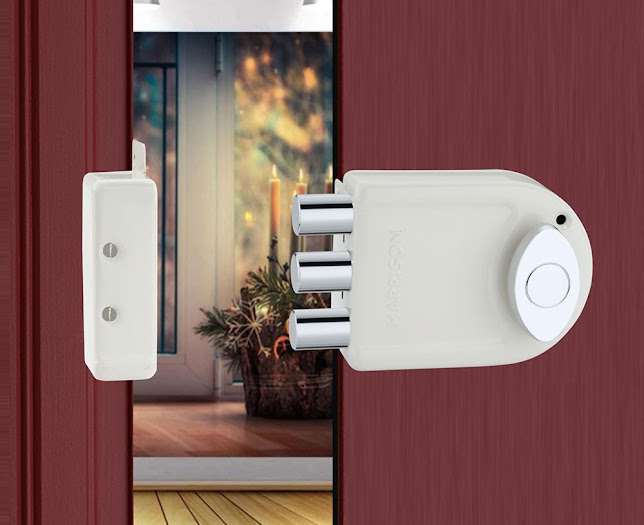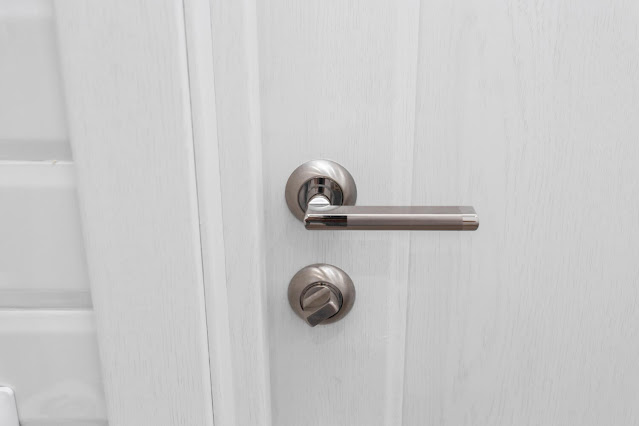A Guide to Locks for Doors
Welcome to the ultimate guide to locks for doors! Whether you're a homeowner looking to enhance your home's security or a business owner wanting to protect your valuable assets, this comprehensive guide will provide you with all the information you need to make an informed decision. Choosing the right lock for your doors is crucial, as it serves as the first line of defense against intruders. In this guide, we will explore the different types of locks available in the market, their features, and their pros and cons. From traditional deadbolt locks to modern smart locks, we will delve into the technology behind each option, helping you understand which one best suits your needs. We will also discuss key factors to consider when selecting a lock, such as security level, durability, and ease of installation. So, if you're ready to take your door security to the next level, let's dive in and unlock the world of locks!
Types of locks for doors
When it comes to securing your doors, there are various types of locks to choose from. Each type offers its own set of features and benefits. Let's take a closer look at some of the most common types of locks available in the market.br
### 1. Deadbolt Locks
Deadbolt locks are one of the most popular choices for door security. They consist of a solid metal bolt that is extended into the door frame when locked. Deadbolts come in two main variants: single-cylinder and double-cylinder. Single-cylinder deadbolts can be locked and unlocked from the inside using a thumb-turn or a key, while double-cylinder deadbolts require a key to lock and unlock from both sides. Deadbolt locks provide excellent security and are relatively easy to install.
### 2. Mortise Locks
Mortise locks are another common type of lock used for doors. These locks are integrated into the door itself, requiring a pocket or "mortise" to be cut into the door. Mortise locks offer a high level of security and are often found in commercial buildings and upscale residential properties. They are more complex and require professional installation.
### 3. Cylinder Locks
Cylinder locks, also known as pin tumbler locks, are widely used in residential and commercial settings. They consist of a cylinder that houses a series of pins, which align when the correct key is inserted, allowing the lock to turn. Cylinder locks are relatively easy to install and provide a good level of security when combined with other measures such as reinforced strike plates.
Factors to consider when choosing a lock for your door
Selecting the right lock for your door involves considering several factors. By taking these factors into account, you can ensure that you choose a lock that meets your security needs and fits your lifestyle. Let's explore some key factors to consider when selecting a lock for your door.
### 1. Security Level
The security level of a lock is an essential consideration. Determine the level of security you require based on the location of the door and your specific needs. For external doors, it's generally recommended to choose high-security locks such as deadbolts or smart locks. Consider features like anti-drill, anti-pick, and anti-bump to enhance security.
### 2. Durability
The durability of a lock is crucial, especially for exterior doors that are exposed to the elements. Look for locks made from high-quality materials that can withstand weather conditions and frequent use. Stainless steel, brass, and bronze are commonly used materials that offer excellent durability.
### 3. Ease of Installation
Consider whether you prefer a lock that can be easily installed as a DIY project or if you would rather hire a professional locksmith. Some locks require special tools and skills for installation, while others can be easily installed with basic household tools. Keep in mind that improper installation can compromise the effectiveness of the lock.
Common door lock problems and troubleshooting tips
Even with high-quality locks, issues can arise over time. Here are some common door lock problems and troubleshooting tips to help you address them.
### 1. Sticky or Jammed Locks
If your lock is sticky or jammed, try spraying a small amount of lubricant into the keyhole. Use a graphite-based lubricant specifically designed for locks, as oil-based lubricants can attract dirt and debris. Insert and remove the key a few times to distribute the lubricant and free up the mechanism.
### 2. Misaligned Deadbolt
If your deadbolt is not aligning properly with the strike plate, you may need to adjust the strike plate or the position of the deadbolt itself. Loosen the screws on the strike plate and adjust its position until the deadbolt smoothly slides into place. Tighten the screws once the alignment is correct.
### 3. Key Breaks Inside the Lock
If a key breaks inside the lock, avoid using excessive force to remove it, as it can cause further damage. Instead, gently remove any loose pieces of the key using needle-nose pliers. If the broken key is stuck, you may need to call a professional locksmith to safely extract it.
Tips for improving door security with locks
In addition to choosing the right type of lock, there are several measures you can take to enhance the security of your doors. Here are some tips to consider:
### 1. Reinforce Door Frames and Strike Plates
Weak door frames and strike plates can make it easier for intruders to force entry. Reinforce these areas with longer screws and metal plates to increase their strength. This will make it more difficult for someone to kick in the door or pry it open.
### 2. Install a Door Viewer or Peephole
A door viewer or peephole allows you to see who is at your door without having to open it. This can help you verify the identity of visitors and avoid opening the door to strangers. Choose a viewer with a wide-angle lens for better visibility.
### 3. Use Security Plates or Covers
Security plates or covers can provide additional protection against forced entry. These plates are installed on the exterior side of the door and reinforce the area around the lock. They can prevent the lock from being easily compromised by prying or drilling.
DIY installation of locks for doors
If you're comfortable with basic DIY projects, installing a lock for your door can be a rewarding task. Here's a step-by-step guide to help you through the process:
### 1. Gather the necessary tools
Before you begin, gather the tools you'll need for the installation. These typically include a screwdriver, a drill (if necessary), a tape measure, and the lockset itself. Make sure you have the correct tools for the type of lock you're installing.
### 2. Remove the old lock
If you're replacing an existing lock, start by removing it. Unscrew the screws holding the lock in place and carefully remove the old lock from the door. Clean the area where the old lock was installed to ensure a smooth installation of the new lock.
### 3. Insert the new lock
Follow the manufacturer's instructions to insert the new lock into the door. This may involve inserting the deadbolt or cylinder into the appropriate holes and securing them with screws. Make sure the lock is aligned properly and functions smoothly.
### 4. Test the lock
After installing the lock, test it to ensure it is functioning correctly. Turn the key or operate the thumb-turn to lock and unlock the door. Check that the latch or deadbolt extends and retracts smoothly without any resistance.
Hiring a professional locksmith for lock installation
While DIY installation can be rewarding, some locks require professional installation to ensure optimal security and functionality. Here are some reasons why you may want to hire a professional locksmith:
### 1. Complex lock types
Certain lock types, such as mortise locks, require specialized knowledge and tools for proper installation. A professional locksmith has the expertise to install these types of locks correctly, ensuring maximum security.
### 2. Time and convenience
Installing a lock can be time-consuming, especially if you're not familiar with the process. Hiring a locksmith allows you to save time and focus on other tasks while the professional takes care of the installation.
### 3. Professional advice and recommendations
A professional locksmith can offer valuable advice and recommendations based on your specific needs. They can assess your door security requirements and suggest the most suitable lock options for your situation.
Maintaining and caring for your door locks
To ensure the longevity and effectiveness of your locks, regular maintenance and care are essential. Here are some tips to help you maintain your door locks:
### 1. Clean the lock regularly
Dust, dirt, and debris can accumulate inside the lock mechanism over time, affecting its performance. Use a soft brush or compressed air to remove any debris from the keyhole and other moving parts of the lock. Avoid using oil-based lubricants, as they can attract more dirt.
### 2. Lubricate the lock
Apply a small amount of graphite-based lubricant to the key and insert it into the lock. Turn the key back and forth several times to distribute the lubricant and ensure smooth operation. Avoid using oil-based lubricants, as they can gum up the lock mechanism.
### 3. Check and tighten screws
Regularly inspect the lock and its components for any loose screws. Tighten them if necessary to ensure that the lock remains secure and functions properly.
Conclusion and final thoughts
Choosing the right lock for your doors is an important decision that can significantly impact your security and peace of mind. By understanding the different types of locks available, considering key factors such as security level and durability, and exploring popular lock brands, you can make an informed choice. Additionally, knowing how to troubleshoot common lock problems, implementing additional security measures, and properly maintaining your locks will ensure their long-term effectiveness. Whether you opt for a DIY installation or hire a professional locksmith, taking the necessary steps to enhance your door security will provide you with the peace of mind you deserve. Remember, your doors are the gateway to your home or business, so make sure to choose locks that provide the best protection against intruders. Stay safe and secure!



Comments
Post a Comment